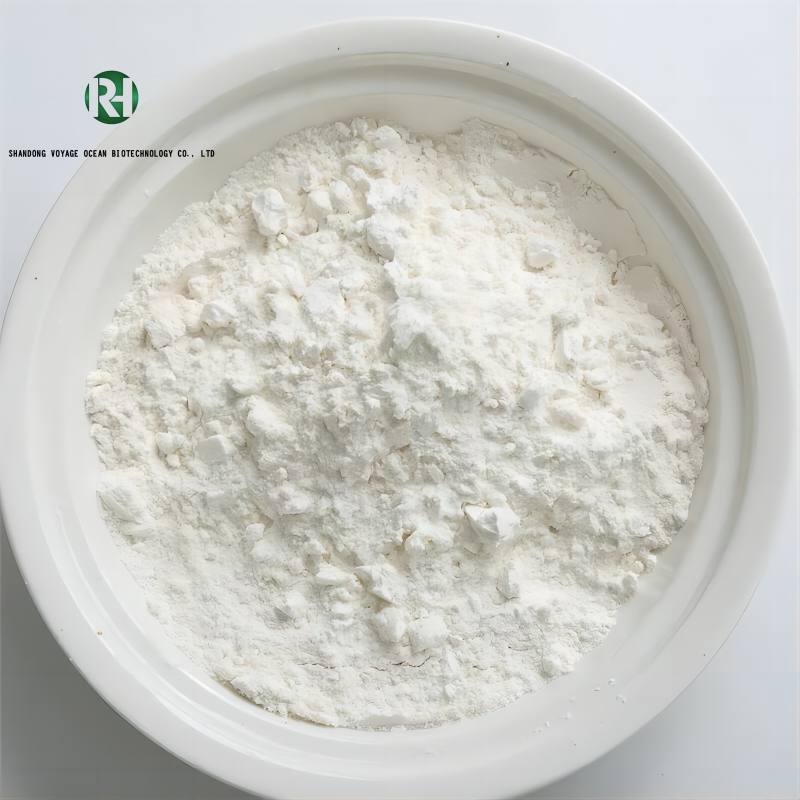-
Categories
-
Pharmaceutical Intermediates
-
Active Pharmaceutical Ingredients
-
Food Additives
- Industrial Coatings
- Agrochemicals
- Dyes and Pigments
- Surfactant
- Flavors and Fragrances
- Chemical Reagents
- Catalyst and Auxiliary
- Natural Products
- Inorganic Chemistry
-
Organic Chemistry
-
Biochemical Engineering
- Analytical Chemistry
- Cosmetic Ingredient
-
Pharmaceutical Intermediates
Promotion
ECHEMI Mall
Wholesale
Weekly Price
Exhibition
News
-
Trade Service
10, 2020 // -- In a recent study published in the international journal iScience, scientists from the University of Yumo in Sweden and others revealed molecular mechanisms for the movement and spread of prostate cancer cells at the molecular level, and the results may help scientists develop new treatments for malignant prostate cancer.
pictured: Kemal Avican researcher Maréne Landstr? 'We found that a particular amino acid in the signaling molecule plays a very important role in mobilizing cancer cells, and in this way increases the risk of cancer metastasis,' m said.
paper, researchers conducted an in-depth study of the growth factor TGF-beta (Transforming Growth Factor Beta), which regulates cell growth and differentiation, after previous studies showed that TGF-beta is found in many cancers. Overexposed expression, including prostate cancer, high levels of TGF-beta are thought to be closely related to poor prognostication and low survival rates in patients, and growth factors stimulate the spread of cancer cells in the body and trigger life-threatening secondary tumors, which is the process of cancer metastasis.
TGF-beta regulates the expression of the Smad7 protein, the active component of the TGF-beta signaling chain, and in healthy cells, Smad7 inhibits persistent TGF-beta signal transductivity through a negative feedback regulation, but now researchers have found that this may be contrary to previous studies, in which Smad7 promotes tumor development by regulating the expression of HDAC6 and c-Jun genes.
researchers say the special amino acid, called Lys102, was found in Smad7 and can be combined with special gene-regulating functional areas in DNA to increase gene expression in HDAC6 and c-Jun, which may have an effect on cancer cells that make it easier to move and metastasize, and now researchers have revealed a clear link between all of these mutations and poor prognostic prognostication of prostate cancer.
, however, the use of HDAC6-based inhibitors may cause prostate cancer cells to lose their ability to move, which may provide researchers with an idea to develop new therapies to reduce the risk of cancer metastasis.
Currently, researchers are conducting clinical trials in the UK to find HDAC6 inhibitors that can treat patients with solid tumors, which means that treatments that use HDAC6 inhibitors may be expected to serve as complementary therapies for patients with refractic cancer, and later researchers will continue to delve deeper into the benefits of this treatment, using Smad7. HDAC6 and c-Jun are used to develop new therapies for patients with malignant prostate cancer, and in addition, this study illustrates the full function of the Smad7 protein, which recruits Smad2 and Smad3 to the site of the above gene transcription, after researchers believed that Smad7 acted as a TGF beta-Smad2/3 transcription activity inhibitor.
original source: Noopur Thakur, Anahita Hamidi, Jie Song, et al. Smad7 enhances TGFbeta-ed transcription of c-Jun and HDAC6 promoting invasion of prostate cancer cells, iScience (2020), doi:10.1016/j.isci.2020.101470.







